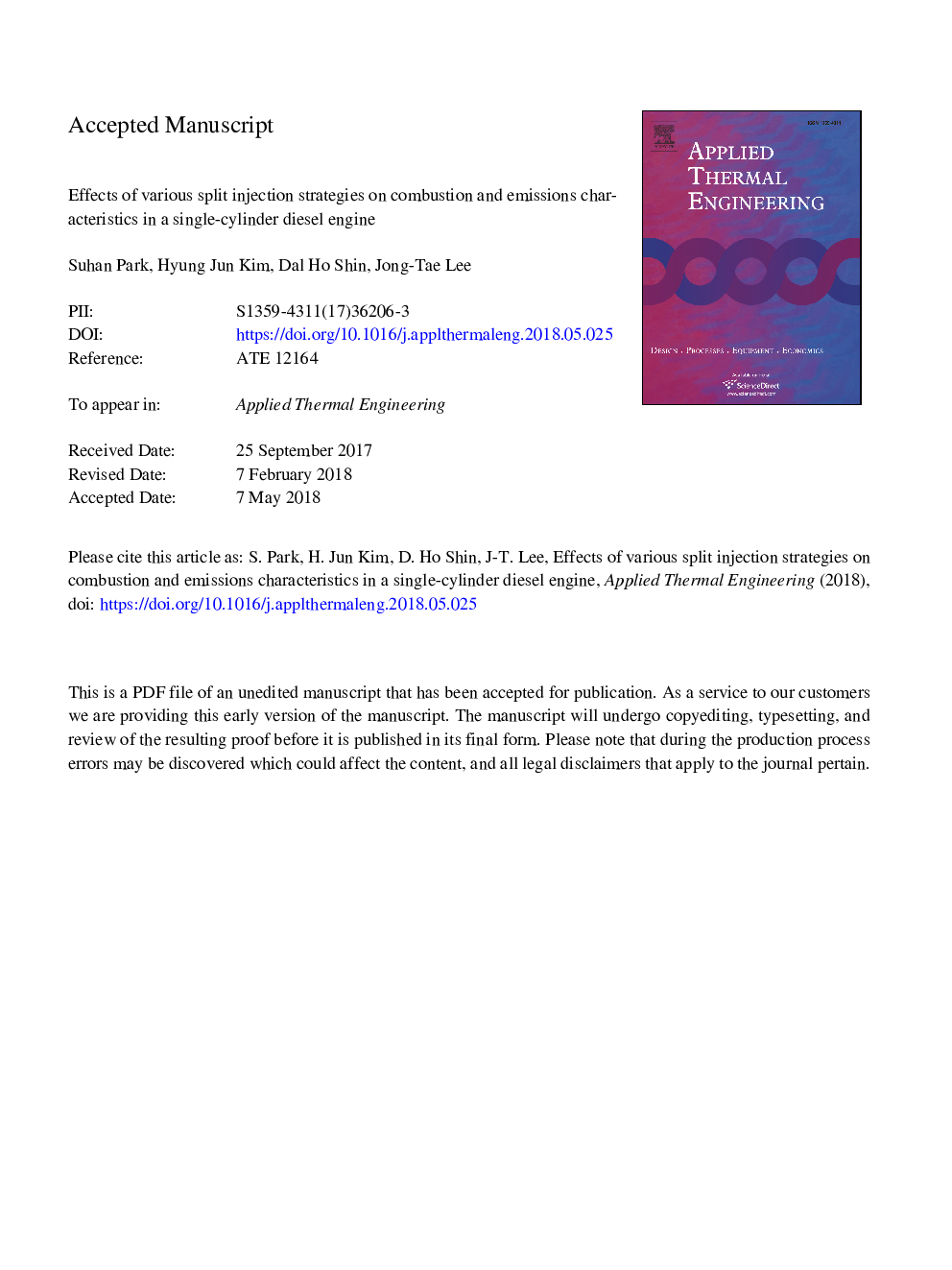| Article ID | Journal | Published Year | Pages | File Type |
|---|---|---|---|---|
| 7045078 | Applied Thermal Engineering | 2018 | 32 Pages |
Abstract
From the analysis of the experimental results, it was revealed that, when the injection pressure was increased without changing the injection timing in split injection, indicated mean effective pressure (IMEP) and brake mean effective pressure (BMEP) decreased and brake specific fuel consumption (BSFC) deteriorated, owing to the increase of dwell duration. The increase of injection interval induced deterioration of BSFC and caused an increase in NOx and HC emissions with significant reduction in CO and soot emissions. On the other hand, the retardation of injection timing with a fixed injection interval caused an improvement of the BSFC, and a decrease in NOx, CO, and HC emissions. However, soot emission increased. According to the analysis, a short injection interval and injection timing around top dead center (TDC), with not too high injection pressure, improve the BSFC and emission characteristics in split-injection diesel combustion.
Keywords
Related Topics
Physical Sciences and Engineering
Chemical Engineering
Fluid Flow and Transfer Processes
Authors
Suhan Park, Hyung Jun Kim, Dal Ho Shin, Jong-Tae Lee,
